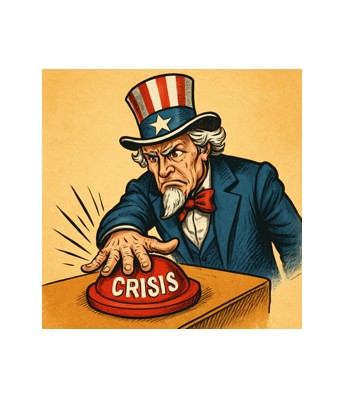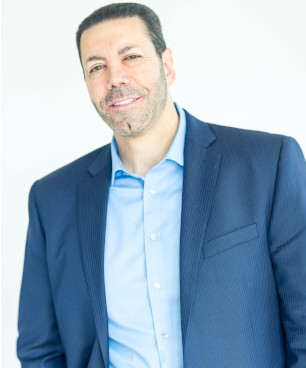Weekly Blog #11
They (Freddie Mac & Fannie Mae) are one half fish, one half fowl—Ben Bernanke
There are few institutions more misunderstood—or more influential—in the housing industry than Freddie Mac and Fannie Mae. Most people know the names, but haven’t a clue as to what they do. They aren’t lenders. They don’t make home loans. And despite their friendly, alliterative names, they’re not some benevolent offspring of Uncle Sam helping you buy a house. They’re government-sponsored enterprises—private companies with a government charter and de facto monopoly—and their job is to ensure the U.S. mortgage market remains liquid, stable, and accessible. In short, they buy mortgages from banks and credit unions, package them into securities, guarantee those securities against default, and then sell them to investors. That process—known as securitization—gives originators fresh capital to make more loans, which in turn helps keep rates low and credit flowing.
Freddie and Fannie don’t take credit risk in the same way a bank does. Instead, they transfer interest-rate risk to investors (bond holders) while retaining a slice of default risk, which they attempt to manage via underwriting standards and guarantee fees. Their implicit backstop is the U.S. government, which isn’t technically on the hook—but has made clear in past crises that it will step in if things go south. That’s exactly what happened in 2008, when both agencies were placed into conservatorship under the Federal Housing Finance Agency. That “temporary” rescue is now in its 16th year.
Despite returning to profitability years ago, and paying hundreds of billions in dividends back to the US Treasury—far more than the cost of their bailouts—Freddie and Fannie remain in financial purgatory. Policymakers can’t decide whether to recapitalize and release them, wind them down entirely, or keep them under federal control indefinitely. The debate is both technical and political, pitting market purists against “affordable housing” (publicly subsidized housing) advocates, and fiscal hawks against mortgage lenders who fear disruption.
The push for privatization hinges on a basic question: should entities that backstop over half the nation’s mortgages be government-run, or should they operate as private companies exposed to market discipline and competition? Supporters of privatization argue that a fully private mortgage system would reduce taxpayer risk and prevent moral hazard. Opponents counter that the 30-year fixed-rate mortgage—a uniquely American product—might not survive in a purely private market. Without a government guarantee, investors would demand higher yields to compensate for credit risk, and that premium would be passed on to borrowers in the form of higher interest rates or reduced access to credit.
And they’re not wrong. The U.S. mortgage market is unlike anything else in the world. Most other countries don’t offer fixed-rate loans for 30 years, much less allow early prepayment with no penalty. That structure requires someone to hold the bag on both interest-rate risk and credit risk for decades. Private investors, left to their own devices, generally don’t want that bag. If Freddie and Fannie disappeared tomorrow, banks would likely revert to adjustable-rate mortgages or demand larger down payments. Liquidity would dry up. Rates would rise. Homeownership would fall. That’s not conjecture—it’s how things worked before the GSE model emerged.
Still, there’s merit to asking why two shareholder-owned corporations receive government backing. It creates an uneven playing field. It distorts capital flows. And it invites abuse, as we saw in the run-up to the 2008 crash, when political pressure led to lower underwriting standards and greater risk exposure. If we’re going to keep Freddie and Fannie in their current roles, we ought to acknowledge the reality: these are now public utilities masquerading as private companies. Their mission is not to maximize profits—it’s to expand access to housing credit while shielding taxpayers from loss. That mandate, however noble, runs directly counter to free market capitalism.
That dual mandate is easier said than done. If they operate like utilities, perhaps they should be regulated like them—tight limits on risk-taking, capped returns, and clearly defined public objectives. If they’re to be privatized, then we must be willing to accept the consequences: less credit availability, especially for first-time and lower-income borrowers, and a mortgage market more sensitive to economic shocks. Either path is defensible. The current limbo is not.
At Wasatch Finance, we operate outside the GSE sandbox. We lend private capital for investment and business-purpose real estate transactions. But we keep a close eye on the mortgage market, because what happens with Freddie and Fannie affects everyone—borrowers, brokers, builders, agents, lenders, and investors alike. Interest rates don’t move in a vacuum. Risk premiums don’t materialize out of thin air. The decisions made in Washington shape the flow of credit in Boise, Salt Lake, or Fresno. And if policymakers don’t resolve this long-running tug-of-war soon, the market may do it for them.
Privatizing Fannie and Freddie isn’t just a political talking point—it’s a moral and economic imperative. The current arrangement is an affront to shareholders, transparency, and economic freedom. Uncle Sam is effectively sucking the lifeblood out of two private companies like a regulatory vampire, draining profits while denying autonomy. Much like the TARP bailouts and emergency nationalizations during the financial crisis, this quasi-government takeover did more long-term harm than good. We don’t want the federal government running private companies—especially not ones at the heart of our capital markets. The private sector will always provide financing for housing, so long as the rules are clear and underwriting standards are sound.
The 2008 meltdown wasn’t caused by greedy Wall Street bankers—it was triggered by HUD’s reckless NINJA underwriting mandates imposed on Freddie and Fannie. Those GSEs didn’t just lower the bar—they bulldozed it, buying up junk paper by the truckload, bundling it into so-called investment grade MBS and CDS packages, and selling them off to unsuspecting investors. Had those Clinton-era mandates never been imposed, the housing crisis would never have happened. The lesson is simple: government should regulate markets, not commandeer them. When Uncle Sam runs private corporations, everyone loses.
Until then, Freddie and Fannie will remain the mortgage market’s redheaded stepchild—too big to fail, too political to reform, and too important to ignore.
Mark Lazar, MBA
CERTIFIED FINANCIAL PLANNER™









